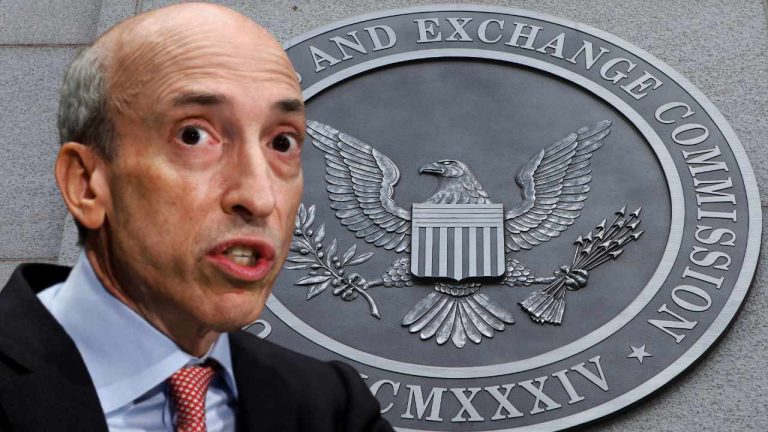US Lawmakers Call on SEC to Stop Regulatory Assault on Crypto Following XRP Ruling

U.S. lawmakers have called on the U.S. Securities and Exchange Commission (SEC) to drop its regulatory assault on the crypto industry following the landmark ruling on the SEC v. Ripple case regarding XRP. “The SEC has chosen to communicate and regulate not by clear rule or guidance but by enforcement actions, often politically timed,” one congressman described.
Congressmen Urge SEC to Stop Regulating Crypto by Enforcement
U.S. Congressman Ritchie Torres (D-NY) wrote a letter to U.S. Securities and Exchange Commission (SEC) Chair Gary Gensler on Tuesday regarding how the SEC should regulate crypto following the landmark ruling on the SEC v. Ripple case regarding XRP.
“I’m writing to inquire if the SEC intends to come to terms with the folly of the Commission’s crusade against crypto assets in light of the latest decision by Judge Analisa Torres of the Southern District of New York,” he began. “Needless to say, regulation by enforcement had a dreadful day in court.” The lawmaker continued:
In a landmark legal opinion, Judge Torres resoundingly rejected the regulatory overreach of the SEC, which has been indiscriminately declaring all crypto assets, except bitcoin, to be securities.
According to Judge Torres’ ruling, which the congressman referred to as the Torres Doctrine, “crypto assets are not securities in themselves but can be sold as part of investment contracts, which do qualify as securities under the Howey Test.”
Moreover, the congressman noted that Judge Torres faulted the SEC “for conspicuously failing to provide fair notice to the crypto industry.” He pointed out that under Chair Gensler, “the SEC has not issued a single rule on crypto assets,” emphasizing that all the securities regulator has done is “sent mixed messages, one after the other, not only contradicting the CFTC [Commodity Futures Trading Commission] but often contradicting itself.”
He added: “When pressed about the status of ether as a security, Chair Gensler has been all over the place: yes, no, maybe so.”
The lawmaker stressed:
The SEC has chosen to communicate and regulate not by clear rule or guidance but by enforcement actions, often politically timed. The endless stream of contradiction and confusion, as well as the arbitrariness of the enforcement actions themselves, is the opposite of fair notice.
“I hope that the SEC will find itself so chastened by the court’s decision that it will concentrate the Commission’s enforcement energies where it belongs: on the bonafide bad actors who perpetrate serious transgressions like fraud, market manipulation, and the misappropriation of customer funds,” the congressman added, concluding:
I look forward to finding out how the SEC will reassess its regulatory assault on crypto assets in light of the Torres Doctrine.
The lawmaker further explained that even though the SEC reserves the right to appeal the district court’s decision, “the chances of an immediate appeal are vanishingly small because there remain issues in the case that have yet to be resolved, and resolving them requires fact-finding (i.e. a trial), which takes time.”
Congressman Warren Davidson (R-OH) agreed with Rep. Torres. He tweeted Tuesday: “I join my colleague in calling for Gary Gensler to embrace a different approach. The Ripple case should make clear that Congress needs to provide clarity that is lacking for investors, innovators, regulators, and even the courts. I remain hopeful that we can agree on a digital asset market structure bill that will do this appropriately and swiftly.”
What do you think about U.S. lawmakers calling on the SEC to stop the regulatory assault on the crypto industry following the XRP ruling? Let us know in the comments section below.